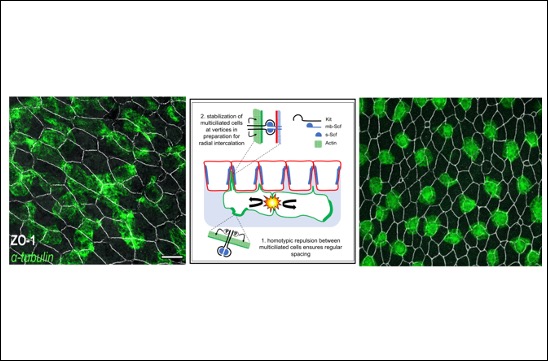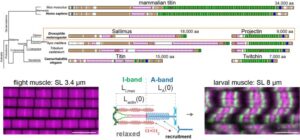 Alexandre CHUYEN, who did his doctoral thesis under the supervision of Andrea Pasini in the Kodjabachian team, was awarded the 2021 Thesis Prize from the French Society for Developmental Biology (SFBD). This prize, created thanks to the generosity of the ZEISS company, rewards each year a doctoral work in developmental biology judged remarkable for the quality and the scope of the results obtained, as well as for the clarity and accessibility of the thesis manuscript. The prize consists of a sum of 1000€. In addition, the winner is invited to present his/her work at the annual SFBD meeting.
Alexandre CHUYEN, who did his doctoral thesis under the supervision of Andrea Pasini in the Kodjabachian team, was awarded the 2021 Thesis Prize from the French Society for Developmental Biology (SFBD). This prize, created thanks to the generosity of the ZEISS company, rewards each year a doctoral work in developmental biology judged remarkable for the quality and the scope of the results obtained, as well as for the clarity and accessibility of the thesis manuscript. The prize consists of a sum of 1000€. In addition, the winner is invited to present his/her work at the annual SFBD meeting.
Alexandre used a multidisciplinary approach, combining in vivo imaging, mathematical modelling and functional perturbations to elucidate the mechanisms that control the surprisingly regular distribution of multiciliated cells in the epidermis of the amphibian Xenopus laevis. Such a distribution is the result of a self-organisation process that depends on two simple phenomena: the mutual repulsion between immature multiciliated cells, and their affinity for the junctions between epidermal cells, among which the multiciliated cells will insert themselves. Surprisingly, these two apparently opposite phenomena are both controlled by the same signalling pathway, dependent on the receptor tyrosine-kinase KIT. Indeed, the interaction of KIT with a soluble form of its ligand SCF promotes the repulsive response, whereas its interaction with a transmembrane form of SCF promotes adhesion to intercellular junctions.
Congratulations to Alexandre, who will present his work at the Shaping Life 2 conference on 8th April 2021!




